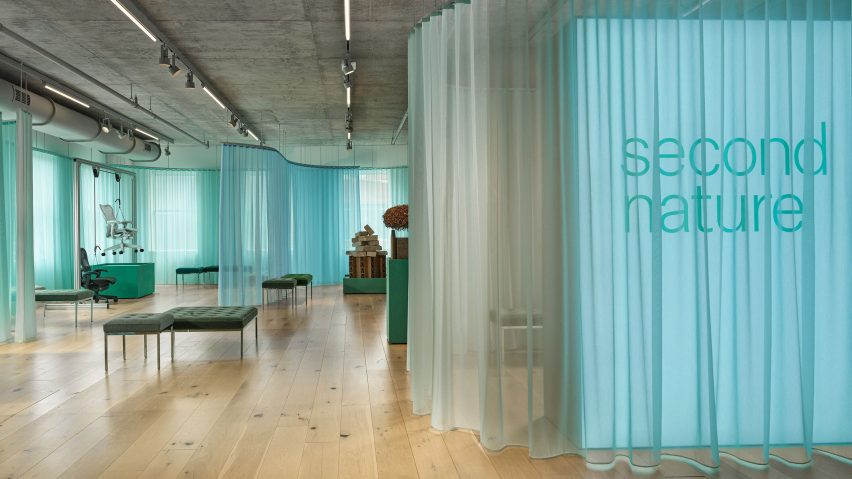
MillerKnoll installation shows sustainable production getting "bigger and better"
American furniture design group MillerKnoll has showcased its material and testing processes through a pair of installations at its showroom in Chicago.
Designed in collaboration with New York consultancy Standard Issue, the exhibition during Fulton Market Designs aimed to highlight the materials, techniques and processes that the brand has launched or refined in the past several years.
According to MillerKnoll vice president of sustainability Gabe Wing, the exhibitions reflect an increase in consumer demands to use more environmentally friendly materials and processes.
The first of the exhibitions, called Second Nature, emphasised materials in products through a series of conceptual installations, with furniture products dissected and accompanied by graphics.
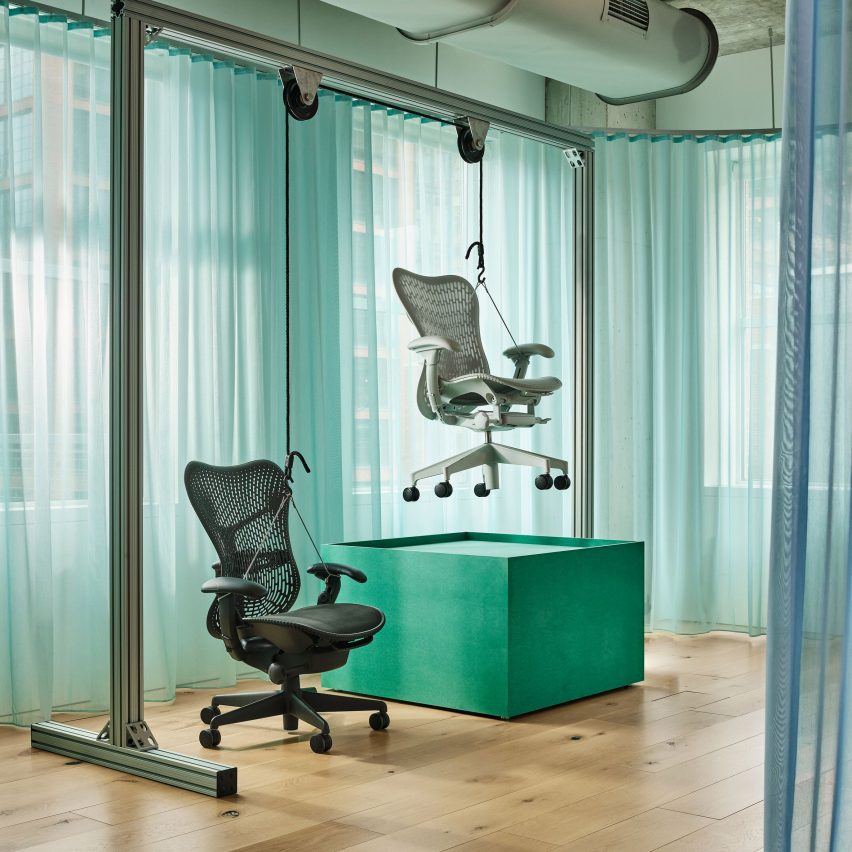
It showcased ethical materials used in already designed products, such as certified wood and the elimination of PFAS in products, a synthetic plastic material that is difficult to break down.
"Our customers are asking for more and our suppliers are at a point where they're ready to deliver," Wing told Dezeen.
"I think we've finally reached a tipping point where it feels like we're going to be able to make big progress."
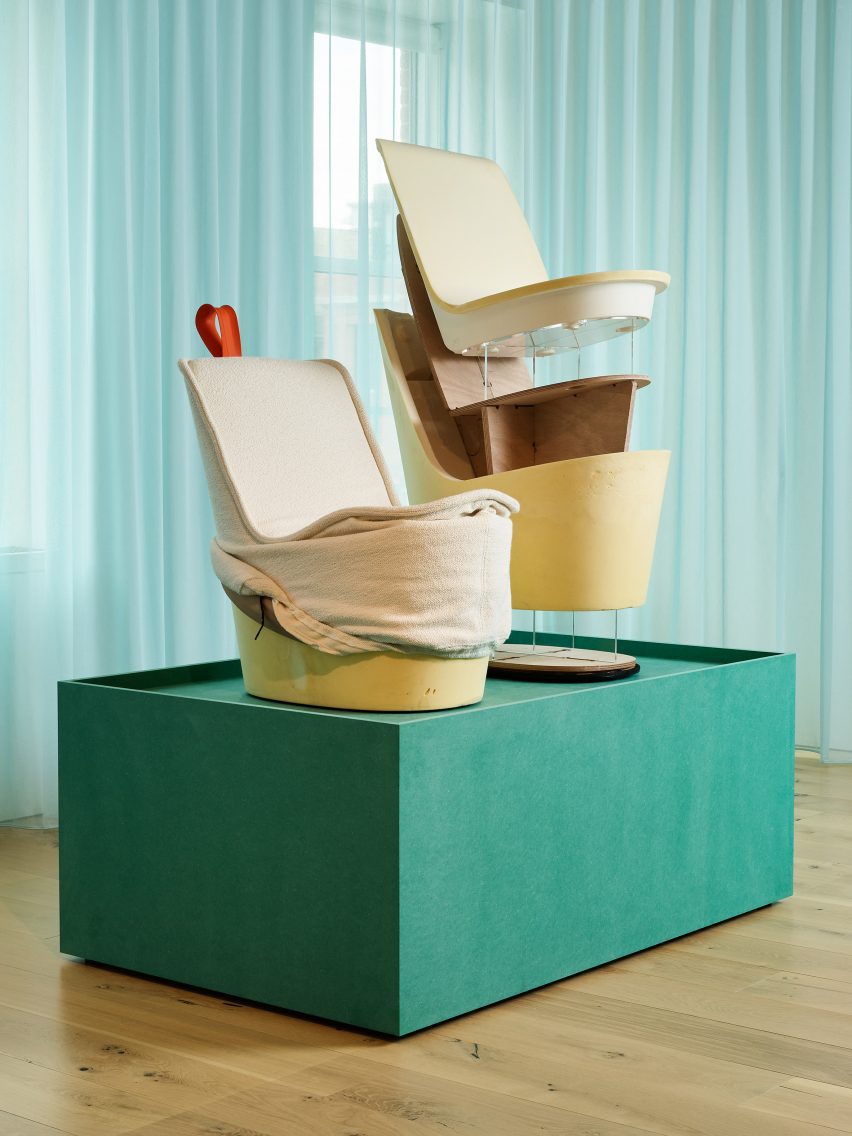
Changing consumer sentiment also informed of the brand's decision to move away from plastic packaging, which it said is saving up to 28 tonnes of plastic waste per year.
MillerKnoll claims that it has reduced its usage of single-use plastic by 51 per cent since 2020, and the Chicago installation demonstrated the use of durable cardboard for packaging and shipping to meet this end.
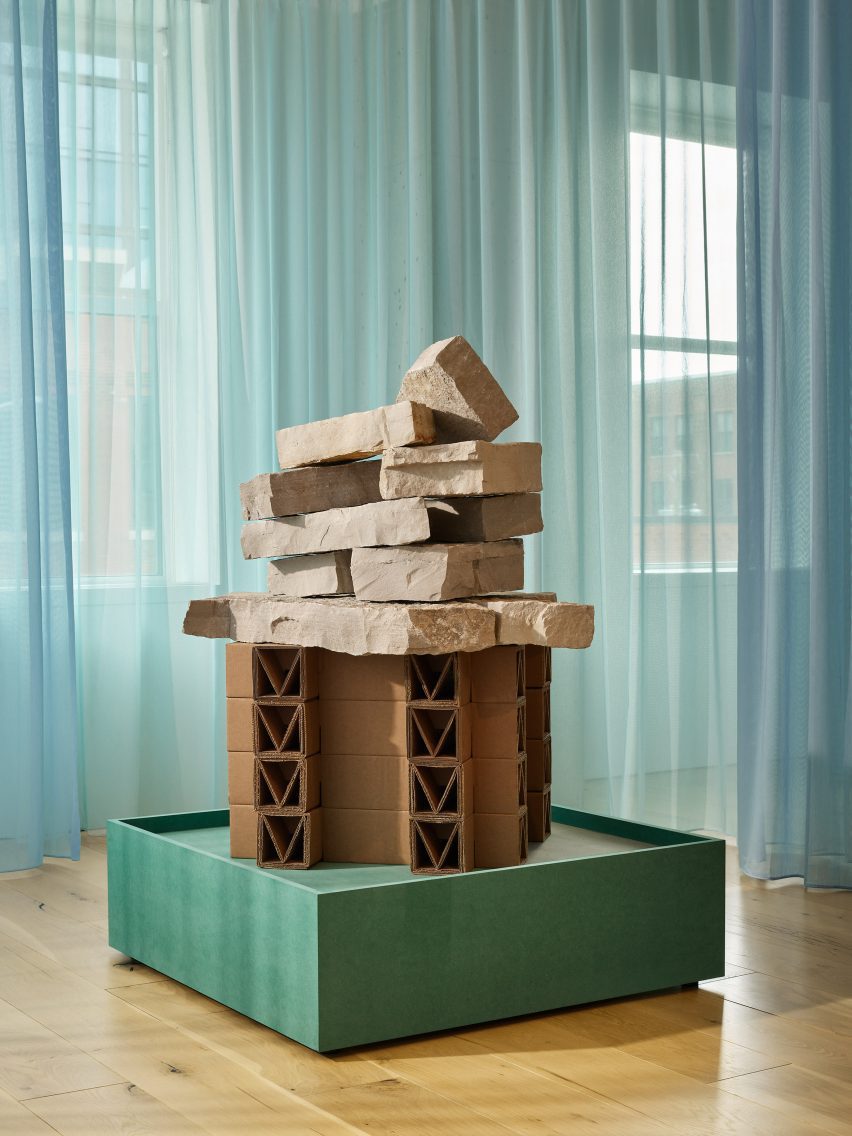
The exhibition then moved to MillerKnoll's focus on recycling, both in utilising outside waste streams and internal sources, as well as the creation of products with replaceable elements, such as the cover on the NaughtOne Pippin lounge chair, which features a replaceable upholstered cover.
MillerKnoll senior vice president of innovation Sean McDowell said the brand has been using recycled nylons from carpet factories and that more and more waste streams are starting to become available – though, according to a report by The Textile Exchange, recycled fibres make up "less than one per cent of the global fiber market".
"I feel like we're in that part of the hockey stick where things keep getting bigger and better," said McDowell. "Finding recycling streams is way easier than it was 24 months ago."
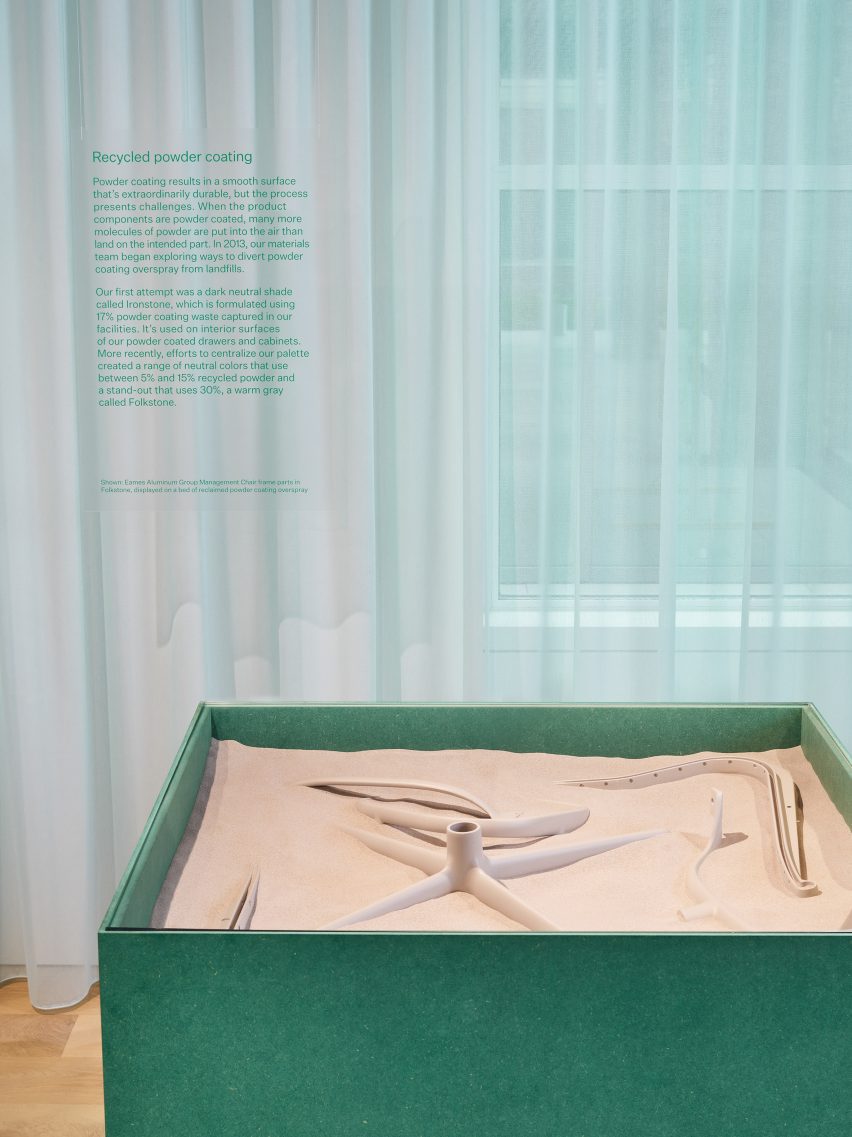
He pointed to the company's use of offcut nylon from carpet factories and its recycling of powder coating materials as the primary examples.
Also shown was a powder-coated chair that showcased the company's projection to recycle 509,000 pounds (23,000 kilograms) of its own powder to be put back into production this year.
Also featured were biomaterials such as eelgrass, which the company is beginning to use as a replacement for fibreglass.
Wing said that the material is far less carbon-intensive and renewable and that it has been used in architecture and design for thousands of years.
"I think the idea of looking backwards and grabbing a material that's been used for centuries, and then innovating and finding how to use it in a new application just really resonates with people," said Wing.
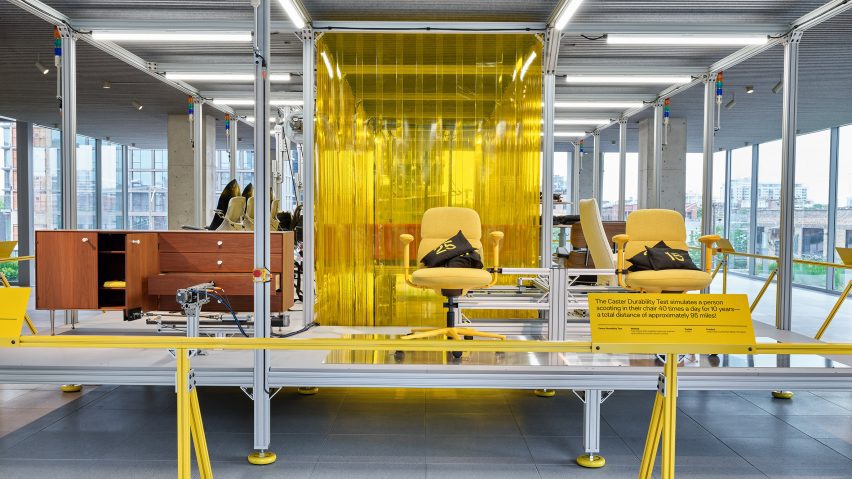
MillerKnoll is already using the plant material for the acoustic wall panelling under its Spinneybeck brand.
The second exhibition was a recreation of the testing labs at the MillerKnoll headquarters in Michigan and had a podium area with industrial touches such as a long yellow plastic divider.
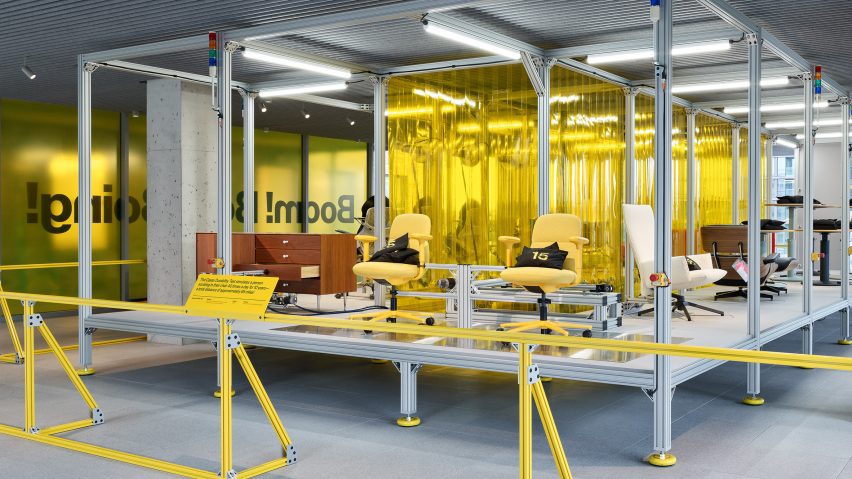
Within the exhibition, furniture products were arranged around the podium and subjected to the testing machines used by the company, such as a chair rotation that stimulates a chair being rotated 48 times a day for 10 years.
Wing and McDowell said that ensuring the products can withstand wear and tear means that people buy new products less often, and create less waste.
"Part of the sustainability story is you have to build things to last a long time," said McDowell.
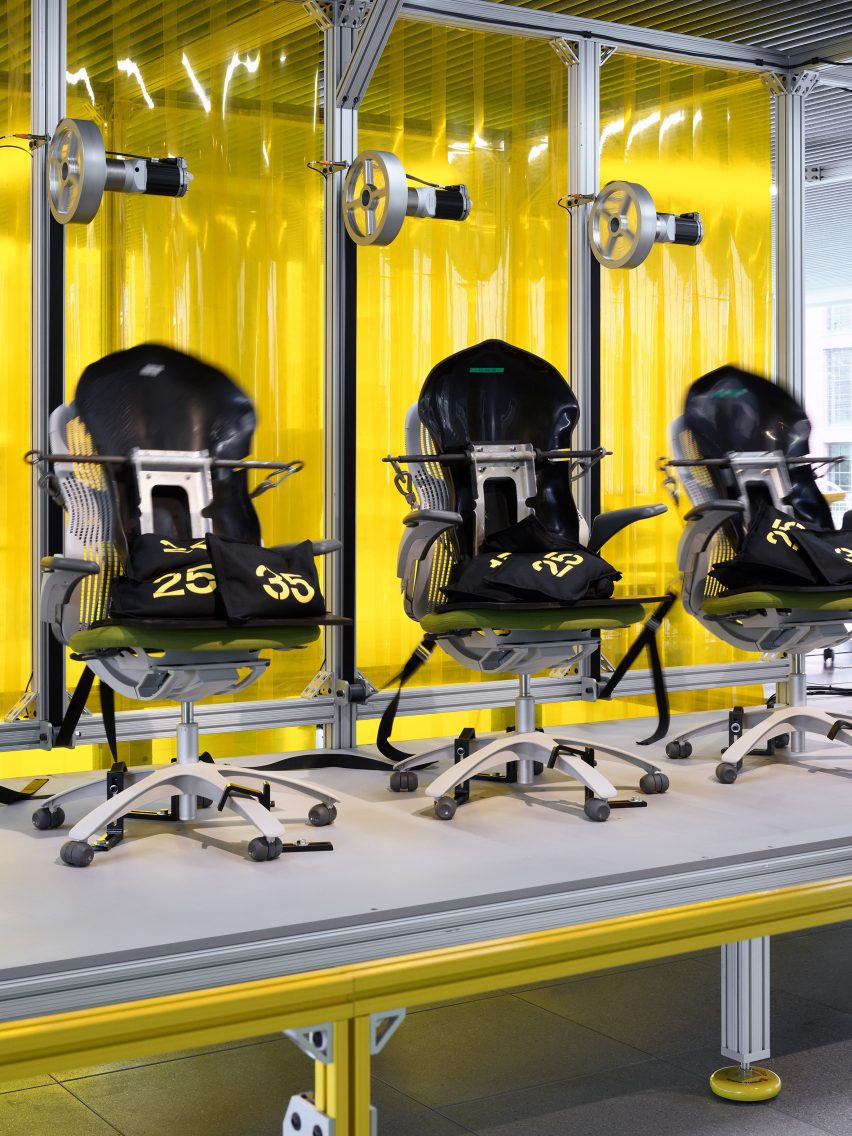
Other exhibitions that showcased sustainable product design include one in Copenhagen called Reset Materials, which featured architectural fragments with low-carbon material.
The photography is courtesy of MillerKnoll.
Fulton Market Design Days took place from 10 to 12 June in Chicago. For more exhibitions, talks and gatherings in architecture and design visit Dezeen Events Guide.